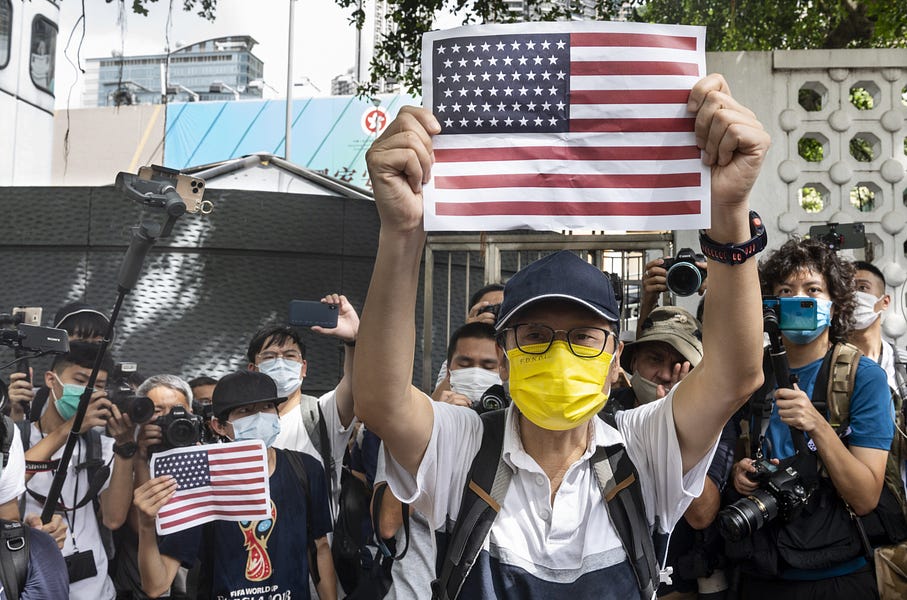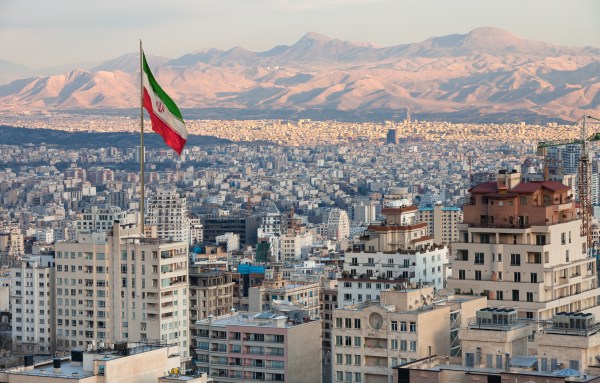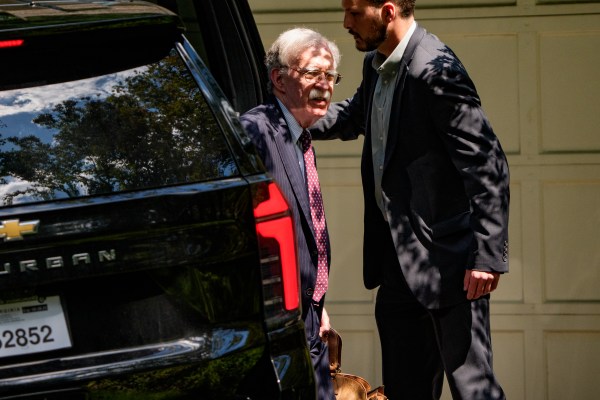This week, the People’s Republic of China imposed Chinese national security law on Hong Kong, violating the 1997 Sino-British declaration handing the territory to Beijing and slamming the door on what was left of a free Hong Kong. The United States, U.K., and others reacted angrily; the Trump administration had already imposed sanctions for Chinese actions in Hong Kong. London offered a pathway to citizenship to 3 million Hong Kongers. But China appears to have rightly calculated that other than a few angry statements and some irritating economic punishments, the world would do nothing in the face of its aggression.
It is almost a truism that a policy of resistance to rogue states, revisionists, bad guys—call them what you will—that is not backed by the potential use of force is bound to fail. But the practicalities of using force are a limiting factor in most cases. As Barack Obama said in defense of his weak Syria policy, “Unless we were all in and willing to take over Syria, we were going to have problems.” That binary Obama formulation—war or nothing—has surprising purchase, particularly in the face of complex problems.
Still, the question Obama asked is the correct one: Are we going to risk war over a security law in Hong Kong, some province of Ukraine, a region of Georgia, Syrians, Yemenis, Somalis…? Almost certainly not. The question has deep provenance: Chamberlain was right that few can muster interest in a “quarrel in a far away country, between people of whom we know nothing.” And by the time the world realizes that it does indeed need to care about these far away quarrels, it becomes almost impossible absent major conflict to rise to the challenge.
Without the implicit threat of force to back up diplomacy—that stick that Theodore Roosevelt eulogized—the effectiveness of measures intended to coerce a determined rogue is very much in question. Indeed, neither sanctions nor stern words have dislodged Russia from Ukraine, nor mitigated Iranian and Russian chemical attacks on the Syrian people. A Permanent Court of Arbitration ruling hasn’t displaced China from the South China Sea, and no number of sanctions have stopped Iran from sponsoring and arming terrorist groups.
In the face of these unpleasant realities, what is the proper course? Containment may have averted direct conflict with the Soviets, but it didn’t liberate the victims of Communist oppression. Wars against Communist expansionism in Korea and Vietnam were hardly satisfying, and Soviet proxy governments continued to spread across the globe, south from Cuba, east to Afghanistan, across Africa. Ultimately, only one policy delivered: When Ronald Reagan decided to force the Soviets to defend every conquest, every territory, every part of its empire, the hollow interior of the Soviet state began to collapse. Working with anti-Communists wherever the Soviets were, the Reagan Doctrine ate away at the evil empire, and forced Moscow to defend even its most casual allies from Angola and Mozambique to El Salvador and Afghanistan. The United States committed no troops.
Neither Russia today, nor Iran, nor China are the Soviet Union. Nonetheless, the analogies remain apt. With concerted pushback, China will not be able to defend every corner of its growing sphere of influence. Nor will Iran be able to fight simultaneously in Syria, Yemen, and Iraq. Similarly, Russia does not have the means to sustain conflict in every far-flung arena in which the Russian military now finds itself. It’s time to make each of these nations’ adventures more costly, not by sending in the Marines, but by empowering the oppressed.
Whether in Ukraine or Syria, Hong Kong or Venezuela, those living under the yoke of tyrants seek to defend themselves. They don’t always need weapons; in Hong Kong, the millions demonstrating against Beijing don’t want war. They want tools to deny China the fruit of its aggression in Hong Kong. They want to ensure that Beijing cannot at once swallow Hong Kong and still benefit from its free and vibrant economy. The rest of the world needs to ensure that political and economic treatment of Communist-owned Hong Kong sends an unequivocal message. Hong Kong is Communist China, and banks and businesses who choose to headquarter their businesses there will be treated as Chinese.
The same goes for China’s steady arrogation of the South China Sea. And while the United States has major economic and strategic interests in ensuring the world’s waterways remain free, there is much that can be done beyond freedom of navigation operations. China has occupied land and territorial waters belonging to Brunei, Indonesia, Malaysia, the Philippines, Taiwan, and Vietnam. More can be done (though the Philippines is a tougher case) to help these nations stand up to Beijing, whether through military training, economic partnership, or more stalwart political support in breaking away from Chinese intimidation.
Similarly, Ukrainians want to fight Russia and its military proxies; they are not asking for others to defend their sovereignty. But it took the advent of the Trump administration to begin to supply lethal weapons to Ukraine. Empowering forces committed to national liberation should be the standard, not the exception. In Syria, hundreds of thousands look to Kurdish militias to protect them, yet the Trump administration has waffled about arming them because of opposition from Turkey. The same Turkey that attempted repeatedly to thwart U.S. military operations in the Middle East.
There is in fact a middle ground between war and capitulation. An effective and intelligent foreign policy will recognize that most victims of oppression wish to live in freedom, but lack the tools to stand up for themselves. A foreign policy that reliably delivers those tools, raising costs to the world’s revisionist powers is the best hope to send tyrants back to their corners.
Photograph by Miguel Candela Poblacion/Anadolu Agency via Getty Images.






Please note that we at The Dispatch hold ourselves, our work, and our commenters to a higher standard than other places on the internet. We welcome comments that foster genuine debate or discussion—including comments critical of us or our work—but responses that include ad hominem attacks on fellow Dispatch members or are intended to stoke fear and anger may be moderated.
With your membership, you only have the ability to comment on The Morning Dispatch articles. Consider upgrading to join the conversation everywhere.